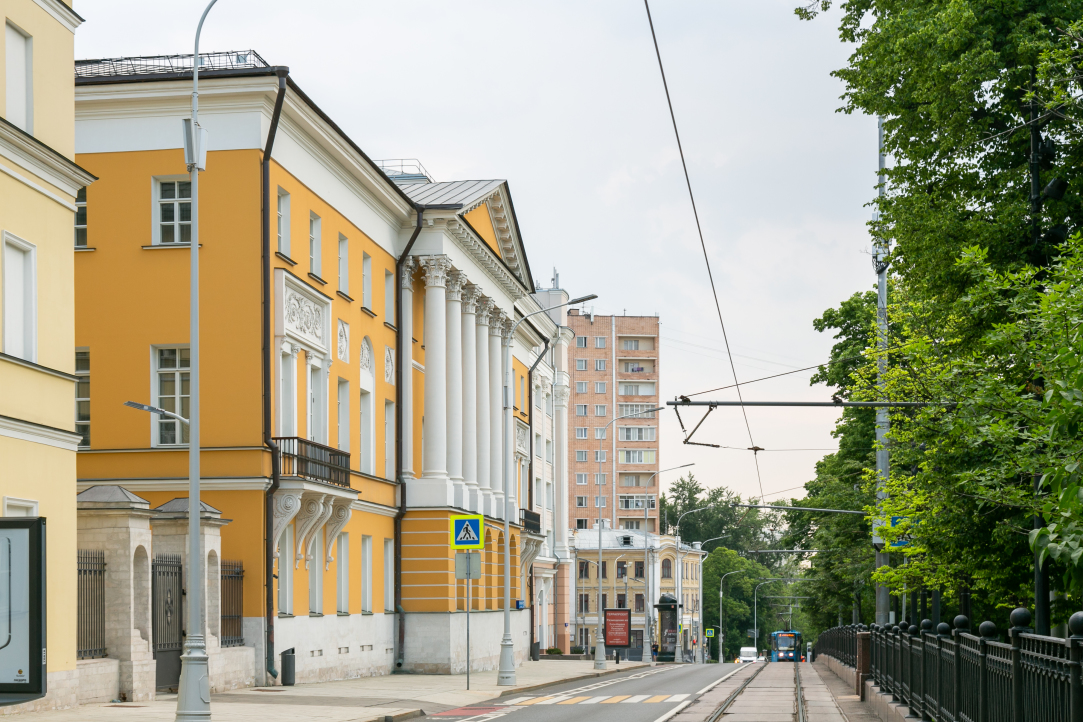HSE University Tops Forbes Best Russian Universities Ranking Second Year Running

HSE has strengthened its top position and widened its lead over Moscow State University, Moscow Engineering Physics Institute, Moscow Institute of Physics and Technology, and other universities in the Forbes Best Russian Universities Ranking. The main contributors to this advancement, according to Forbes, were the improvement in the average Russian Unified State Exam (USE) score of accepted students, a better faculty-student ratio, and younger staff. This year, HSE University also leads the employer survey.
On June 24, Forbes presented its fourth ranking of the best Russian universities. For the second year in a row, HSE University took first place. The University additionally strengthened its score, earning 85.78 points out of 100 possible. Moscow State University came in second with 78.53 points, while MEPhI took the third place with 74.05 points.
Forbes editors note that technical universities are most popular. There are seven of them in the top ten, while the rest are comprehensive universities with a strong technical focus.
HSE University managed to strengthen its position due to an improvement in the average USE score of accepted students, a better faculty-student ratio, and younger staff.
HSE University also leads the employer survey. Forbes reports that the most popular Russian universities among the children of billionaires are MGIMO (11 heirs), Moscow State University (10 heirs) and HSE University (8 heirs). It is worth noting that among the winners of the ‘30 under 30’ ranking, which includes young people who by the age of 30 have received recognition in the professional community and become known at the national or global level, the majority are graduates of HSE University (6 graduates) and Moscow State University (5 graduates).
In total, the long list of the Forbes ranking of the best Russian universities includes 502 universities offering Bachelor's and Master's programmes. They were assessed according to several metrics:
Quality of Education (maximum 30 points) was based on monitoring data from the Ministry of Education and included two parameters: quality of teaching and international activities.
Internationalisation takes into account the share of foreign students studying at the university (5 points), the share of international faculty (5 points) and the presence of double degree programmes with foreign universities (5 points). The international mobility metric was not taken into account this year due to the pandemic.
Quality of Networking (maximum 30 points) assesses the general level of students who entered the university and their ability to form useful connections in the learning process. The metric includes two parameters: the average USE score of accepted students (20 points) and the Forbes factor (10 points). Points in the Forbes factor parameter were received by universities where the children of the 200 wealthiest magnates in Russia study (or studied), as well as the winners of the 2021 Forbes rating of young and successful Russians according to Forbes.
Employability (30 points) is studied using requests to 100 companies that are among the best employers in Russia. The companies provided information regarding: the graduates of which universities they hired in 2020-2021, the graduates of which universities received an increase in salaries and/or were promoted in 2020-2021, the graduates of which universities they would like to hire as a priority. The questionnaires were completed by 35 companies, including Yandex, Alrosa, Tinkoff Bank, Sibur, Splat, Polyus, Rostelecom, Rosatom, Mail.ru, Megafon, and others.
Furthermore, each university can receive up to 10 additional points in the International Recognition metric, which considers the university's presence and position in three leading international rankings—the QS World University Rankings, the Times Higher Education Ranking, and the Academic Ranking of World Universities.

